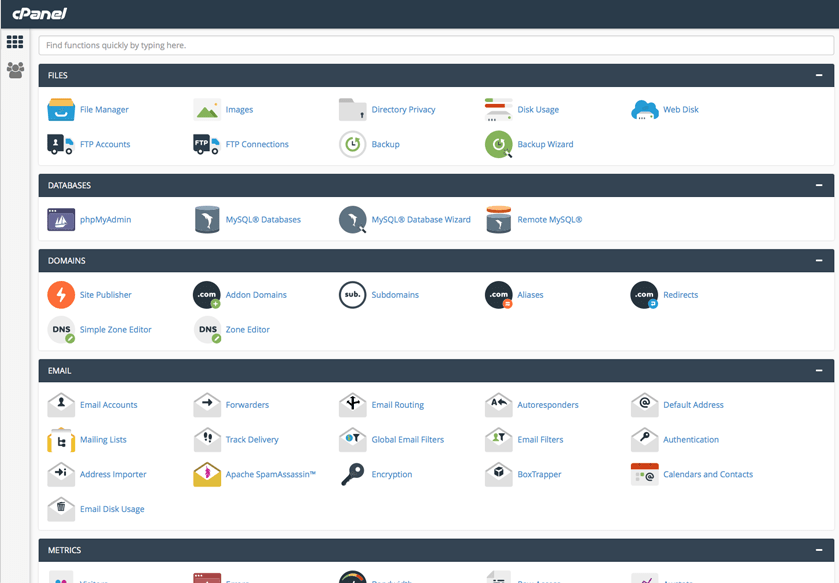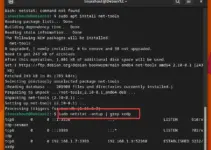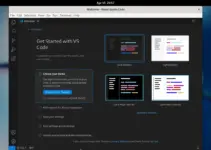Online you can find dozens of Linux-based hosting service providers such as Godaddy, Hostinger, and more, but what is the common among them? It is the usage of the most popular operating system Linux. Because of its lightweight and free + open-source license. However, the thing which makes beginners annoyed while using Linux is its command line interface. That’s why Linux hosting providers generally combined it with Cpanel (Control Panel) software, one of the best among other popular GUI control panels.
Now, let’s understand Linux hosting and its relation with Cpanel.
Linux is a free-to-use open-source operating system that can be downloaded easily. When we use it to create a web server to host or store web applications or websites, it is known as Linux hosting. Without the hosting server, a website cannot be presented to the online world.
You can imagine it as a space in your house for car parking. Now, if your friend also wants to use your Car parking space to store his bike then you can charge for that, right?
Similarly, when big to medium size web hosting companies offer space on their Linux servers they are going to charge for it. And based on the user’s needs, they offer different hosting plans.
Hence, we can say Linux running on server hardware with space to store a website or any web app is called Linux hosting. Better than Windows hosting because of its low cost and fewer platform restrictions which makes it more affordable.
Further, whenever Linux hosting or in simple words, Linux OS gets installed with Apache, MySQL, and PHP, this combination will be known as LAMP. Similarly, if installed with Nginx, MySQL, and PHP, it will be called LEMP.
LAMP and LEMP are two popular web hosting software stacks used for running various web applications or server-hosted websites.
Benefits of having Linux hosting
The major benefit is Linux is a free and open-source operating system. Hence it reduces the cost of Linux hosting as compared to Windows.
- We can use various opensource software natively such as PHP, Apache, and MySQL
- Long-term support of Linux server and stability makes it a reliable hosting.
- Popular web software meant to run on Linux hosting such as WordPress
- It is secure with fewer chances to get affected by some viruses because of a powerful permission system.
- Consumes fewer hardware resources and it becomes affordable for users to buy.
- Free software Upgrades
Now what are the drawbacks
Well, one of the biggest cons of Linux hosting is without web GUI handling it would not be an easy task for new users.
To install and run websites on Linux hosting a user needs command line knowledge if he or she using it without any kind of web GUI.
You cannot run CMS or applications that are meant for Windows hosting on Linux.
Further, again uploading websites to the server will not be easy. To take into account all such downside of Linux hosting developers created GUI controls panels.
Linux Hosting installed with Cpanel

We can mitigate the cons of Linux hosting by combining it with WHM Cpanel. As we know using the command line to manage apps and other services is quite difficult. Therefore, to make things easy for beginners and even for professionals; developers of WHM (WebHost Manager) came up with a web software that we know as cPanel.
Linux hosting providers install cPanel on their Linux servers (such as Ubuntu, AlmaLinux, & RedHat) to offer an easy-to-use web interface. From where a novice can easily upload and start hosting multiple websites.
WHM’s control panel is not free software although Linux is. So, while buying the Cpanel hosting, service providers in their different plans add the costs of providing this software.
We can use cPanel with shared and dedicated hosting even for managed WordPress hosting as well. Only the users are not getting benefits here even the providers as well.
They can use the WHM, cPanel is a part of it, to offer multiple resellers or hosting accounts, this is how shared hosting is possible. In this, service providers use the WHM to create multiple cPanel accounts; depending upon how many licenses they have bought from the WHM developers. Then assign them to us when we buy them in the form of Linux hosting with Cpanel.
Advantages of Linux Cpanel Hosting
- Provides interactive and easy-to-use web-based interface to CLI Linux web servers.
- One-click installation with Softaculous Apps Installer to install popular web applications such as Joomla, WordPress, and more, instantly. More than four hundred software are available through Softaculous. It also keeps the track of updates available for apps and automatically applies them, if set by the user to do so.
- No, need to have command line knowledge to host websites, apps, and FTP accounts.
- Inbuilt File Manager to upload and download files from your Linux hosting server.
- Allows easily to create subdomains and redirects them.
- The biggest challenge appears when a user has to manage the database. cPanel also helps here as well. With a few clicks, a user can create or delete MySQL/MariaDB databases and users.
- Further, to manage the Databases using the GUI, the phpMyAdmin tool is there.
- cPanel is well-documented software; forums and hundreds of tutorials are available online if you are facing some problems.
- Also, let users configure PHP versions, Apache, Perl, and other services.
- Official Email accounts can be created directly from the Cpanel interface with the registered domain or subdomain.
- Taking a Back up of whole website files and Databases is super easy.
- Saves lots of time for users, so that they can be more productive.
Does cPanel run on Linux?
Yes, cPanel is only meant to run on Linux server distros such as Redhat, CentOS, Ubuntu Linux, AlmaLinux, and more. If you want to learn how to install it, can refer to the official website.
You might also like:
- How to install WHM Cpanel on AlmaLinux 8 Server
- How to install WHM & CPanel on Ubuntu 20.04 LTS Linux
What are 3 examples of a Linux server?
There are dozens of Linux server OS available to use, some of the popular ones are:
RedHat: It is an enterprise-class Linux that has been used by hundreds of businesses and service providers to power their IT infrastructure. The key reason behind it is their paid support.
Ubuntu: Those who have ever used open-source operating systems would already be familiar with Ubuntu. It is a Debian-based operating system powering millions of servers.
Debian: Well-stabled and older Linux server distro. It is the first choice for users who want a long-term support, stability, and fewer version updates of existing software.
Other Articles:
6 Best free Cloud hosting Control Panels for Linux Servers
How to install Webmin on Debian 11 Bullseye Server Linux





